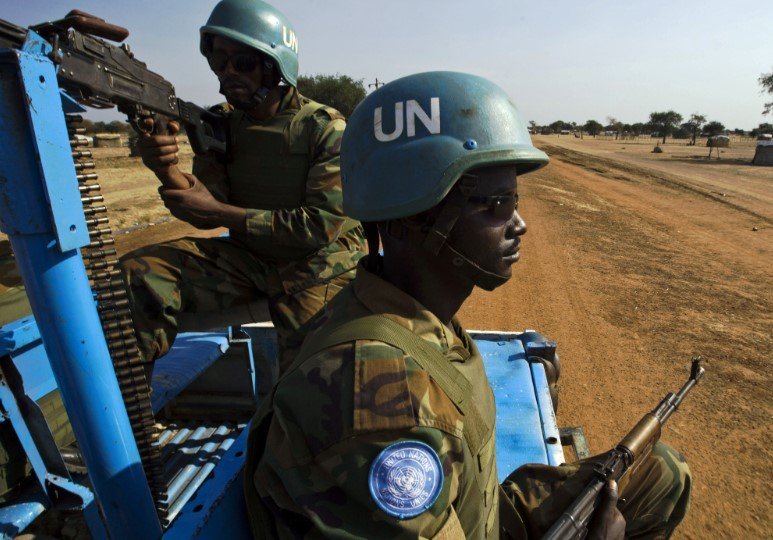Egypt is calling for a United Nations peacekeeping force in Gaza to monitor aid delivery and support local governance. Foreign Minister Badr Abdelatty shared this plan during a recent interview, stressing the need for quick action amid ongoing humanitarian challenges in the region.
Background on Egypt’s Proposal
Egypt’s Foreign Minister Badr Abdelatty revealed Cairo’s push for a UN Security Council resolution to deploy peacekeepers in Gaza. This move aims to ensure aid reaches those in need without interference.
The proposal comes as Gaza faces severe shortages of food, water, and medical supplies. Abdelatty noted that the force would focus on oversight rather than control, helping Palestinians manage their own affairs.
Recent reports highlight Egypt’s role in leading this effort. Diplomats suggest the force could operate under a UN mandate, backed by the US and European nations.

This initiative builds on Egypt’s history of aiding Gaza. For instance, Egypt has sent multiple convoys, including one with over 7,200 tons of supplies earlier this year.
Key Goals of the Peacekeeping Mission
The main goal is to oversee aid flow and prevent misuse of funds. Abdelatty emphasized that the mission would support essential services like water and healthcare.
Another focus is training local police to maintain order. This could help stabilize Gaza after years of conflict.
The force would not enforce peace but keep it, according to sources. It might include contributions from countries like Azerbaijan.
Egypt insists on clear rules from the UN Security Council. Abdelatty said Cairo is ready to join in various ways, but only with transparent guidelines.
Experts say this could mark a shift in international involvement. It ties into broader talks on Gaza’s future, including self-governance.
Logical reasoning points to urgency: Aid blockages have worsened hunger, with UN reports showing millions at risk.
Current Aid Situation in Gaza
Aid has started flowing more steadily, but challenges remain. UN officials report that recent deliveries include fuel and medical items from Egypt.
However, restrictions often limit what enters. For example, some fuel is only for transporting aid, not for hospitals or water systems.
Here is a breakdown of recent aid efforts:
- Egypt’s Contributions: Over 460 trucks with 7,200 tons of food and supplies in one convoy alone.
- UN Involvement: Allocated $11 million for emergency winter aid.
- Daily Targets: Plans for up to 100 trucks per day, including food and fuel.
- Challenges: Inspections and border issues slow down deliveries.
These points show progress, but more is needed. Families in Gaza wait for consistent supplies amid truce talks.
In addition, UN agencies warn of unhindered access requirements. Without it, aid cannot scale to meet demands.
International Reactions and Support
The US and European powers are preparing a UN resolution to back the force. This would give it legitimacy without labeling it a full peacekeeping operation.
France and the UK are finalizing plans for a stabilization force. They aim to lay foundations for long-term security.
Azerbaijan has offered to contribute troops. This broad support reflects global concern over Gaza’s crisis.
Trump’s proposed Peace Council could complement the mission. It would include international figures to aid reconstruction.
Reactions vary, with some praising the idea for its focus on aid. Others worry about foreign influence in Palestinian matters.
Potential Impact on Gaza’s Future
If approved, the force could boost aid and rebuild trust. It might help transition to Palestinian-led governance.
Experts predict this could reduce violence and improve living conditions. For example, better aid flow might ease famine risks reported by the UN.
However, success depends on cooperation from all sides. Past efforts have faced hurdles from political tensions.
Related events include recent hostage releases tied to aid increases. These show how linked security and humanitarian issues are.
In Gaza, families hope for lasting change. The proposal could be a step toward that.
| Aspect | Details | Impact |
|---|---|---|
| Aid Monitoring | Oversee fund distribution | Ensures aid reaches civilians |
| Local Support | Train police forces | Builds self-governance |
| International Backing | US, Europe, Azerbaijan | Provides resources and legitimacy |
| Challenges | Border restrictions | Delays in delivery |
| Recent Data (2025) | 190,000 tonnes of aid pending | Addresses winter needs |
This table outlines core elements of the proposal and its potential effects.
The push aligns with trending global talks on Middle East peace. It addresses user searches for updates on Gaza aid and UN roles.
As this story develops, readers should stay informed on UN decisions. Share your thoughts in the comments below, and spread the word to raise awareness.
